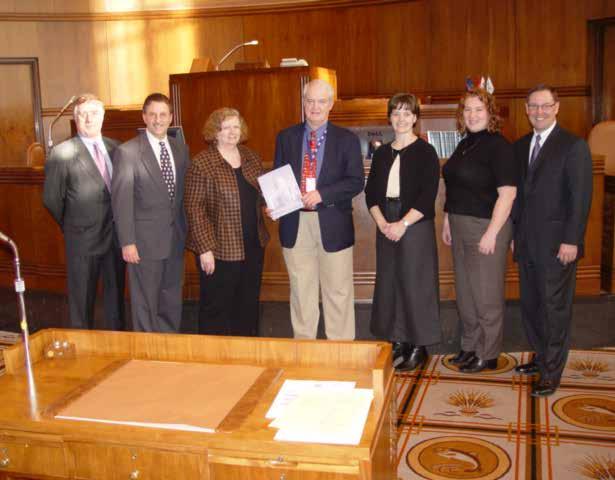

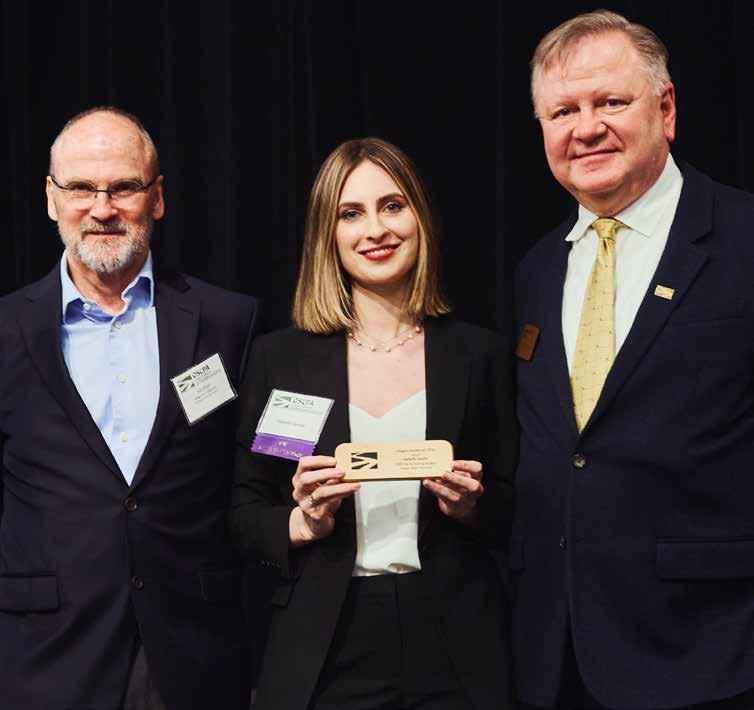
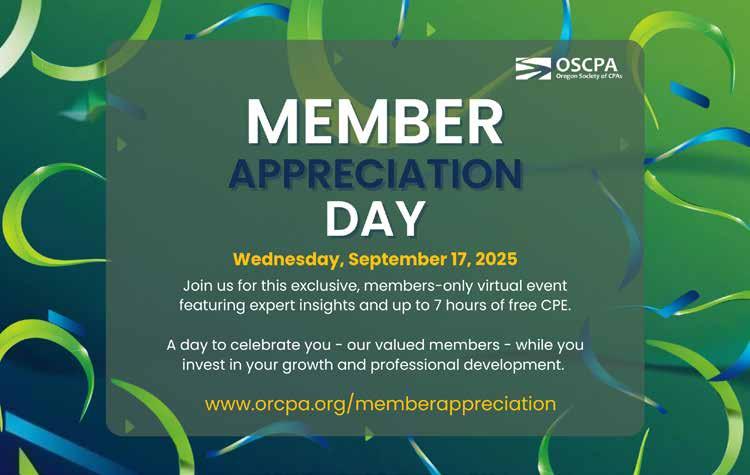







Publisher
Oregon Society of CPAs
Mailing address
10206 SW Laurel St., Beaverton, OR 97005-3209
503-641-7200 | 800-255-1470 | Fax: 503-626-2942 www.orcpa.org | information@orcpa.org
Chair
Gary Holcomb
Chair-Elect
Adam Abplanalp
Vice Chair
Megan Kurz
Past Chair
John Hawkins
Board of Directors
Bradley Bingenheimer
Christopher Dahlvig
Tricia Duncan
Jonathan Grover
Jared Holum
Cameron Irtifa
Michael Lortz
Tiffany Nash
RL Widmer III
President/CEO
Sherri McPherson, IOM, CAE
Editor
Susan Fleming sfleming@orcpa.org
OSCPA Chapters Benton-Linn
Central Oregon Eastern Oregon
Emerald Empire Mid-Columbia
South Coast
Southern Oregon
OSCPA leaders successfully support expanded pathways bill in Oregon Legislature 5
New standards for quality management in your accounting or auditing practice 7 by Harry Bose, 2016-2017 Chair, OSCPA Board of Directors
The cost of AI resistance to corporate finance 10 by Claire Burke, CPA, Dearborn Group
A young CPA’s view of OSCPA leadership 12 by Alyssa Downs, Chair, OSCPA Young Professionals Committee
In Memory: Cheryl Langley, 1989-2011 OSCPA President/CEO 20
From the Chair 4
Member News 14
Professional Development 21
Content and Editorial Assistance Up10 Solutions
The Oregon Society of CPAs assumes no responsibility for statements or advertisements herein and reserves the right to reject any advertising. Statements and opinions expressed are those of authors and not necessarily those of OSCPA. Publication of an advertisement does not constitute an endorsement of the product or service by Accounting Connect or OSCPA.
Update your contact information at www.orcpa.org/my-cpa/profile
Copyright© OSCPA 2025
Magazine design by Joleen Funk joleen.funk@gmail.com
Stock images by istockphoto.com & stock.adobe.com
Cover image by Fletcher Wold Photography www.fwoldphotography.com
Connect with OSCPA


Accounting Practice Sales 6
CPACharge 9
Private Practice Transitions 19
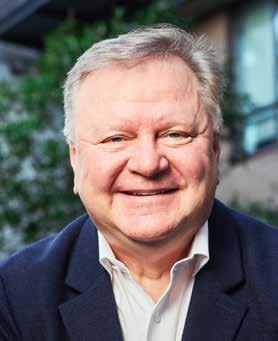
Gary
OSCPA membership provides many tangible benefits such as professional development and member discounts. A crucial benefit—that is harder to see and feel—is advocacy. Through the years, my involvement with OSCPA has given me much in return, but none so much as my involvement in advocacy.
Advocacy is in OSCPA’s mission statement and was included as one of five key initiatives when the Board of Directors created the Society’s 2025-28 strategic plan this spring. During our discussions, the myriad of ways that members directly benefit from advocacy became abundantly clear. The best way to demonstrate this may be to highlight just a few of the ways OSCPA is advocating on your behalf:
• Oregon Legislative Tracking Analysis and Testimony. The Taxation Committee and the Legislative Policy Committees are teams of volunteers who spend many, many hours each legislative session determining the impact of proposed legislation on our members and their businesses and clients. This allows the Society to issue real-time updates to members and provide a comprehensive overview after each legislative session. These committees are vital to Oregon CPAs. Issues brew and build, sometimes for years—they can move slowly across the country towards us, or pop up out of nowhere. Most of us do not have time to add full-time legislative watchdog to our schedules. Many of our volunteers are already extremely busy meeting their own work deadlines, but we divide the effort and get it done.
• Stakeholder Relationships OSCPA also works with individual legislators, Legislative Revenue staff members, and a variety of Senate and House Committees. This allows OSCPA members to develop deep, individual relationships with the various stakeholders. These relationships allow the Society and its members to be a trusted and reliable resource. When OSCPA asks for something for our members, these stakeholders take us very seriously because of the trust we have worked to develop and the time we have invested.
• Federal Advocacy I personally was excited to be involved in a visit to Washington, D.C. to meet with federal legislators to help explain issues important to Oregon CPAs.
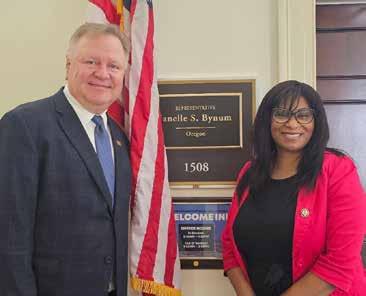
• Oregon Board of Accountancy Society staff and members have developed deep and extensive relationships with our regulators. At a recent AICPA meeting, comments were made on the national level that Oregon is a model for how a Society and Board should work together. This is something we can be truly proud of as an organization.
These are just a few of the types of advocacy that goes on year round. As mentioned, this work can be hard to quantify. It has grown slowly and steadily over decades into something OSCPA members benefit from and are protected by—even if they aren’t aware of the work.
I invite you to help. You don’t need special knowledge or background to volunteer. Experienced volunteers will help guide you—no one gets thrown into the deep end. You will learn so much and develop skills, awareness, and relationships.
It was a wonderful occasion for the Oregon CPA community and those aspiring to become CPAs as Oregon Senate Bill 797 was signed by Governor Kotek. The bill takes effect January 1, 2026 and is part of a national effort to expand pathways to CPA licensure and build the pipeline, while protecting CPA mobility.
Oregon’s bill provides three pathway options:
• A bachelor’s degree plus two years of experience
• A master’s degree plus one year of experience
• The current pathway was retained of 150-semester hours with a bachelor’s degree and one year of experience.
Note: all options require passage of the Uniform CPA Examination.
SB 797 was advanced by the Oregon Board of Accountancy (BOA) and supported by the dedication and commitment of OSCPA leaders and volunteers. The Oregon Association of Independent Accountants (OAIA) also supported the bill. The strength of the collaboration by the BOA, OSCPA, and OAIA, was key to the bill’s success. We were so fortunate to
Lastly, my deepest appreciation to the OSCPA volunteers who do this work, some for decades, some for years, some just beginning. We are a strong team and we absolutely cannot have had all the success we’ve had without your dedication. I thank you sincerely and look forward to continuing to work together to serve OSCPA members and the profession.
Gary Holcomb, JD, CPA 2025-26 Chair, OSCPA Board of Directors ChairGary@orcpa.org

To learn more about supporting OSCPA advocacy, email ChairGary@orcpa.org or OSCPA President/CEO Sherri McPherson at smcpherson@orcpa.org.

have the unanimous support of both the Oregon House and Senate, and to have the bill signed by the Governor.
Special thanks to past Society Board Chairs John Hawkins of REDW LLC and Jason Orme of Talbot Korvola & Warwick LLP for testifying on behalf of this important bill.
The complete bill can be found at: https://olis. oregonlegislature.gov/liz/2025r1/Measures/Overview/SB797.
Watch for the 2025 OSCPA Legislative Report coming soon.






































by Harry Bose, CPA, The RBH Group
The new Quality Management (QM) Standards, which will replace the quality control standards that currently apply, require significant revisions to the quality control systems of any CPA firm performing audits, reviews, compilations, or other attest engagements. Although the preparation service is a non-attest service, the new QM standards also apply to firms that have restricted their accounting practice to the preparation service. However, you are exempt if you are solely a tax and bookkeeping practice. There are two new QM standards:
• AICPA Statement on Quality Management Standards (SQMS) No. 1, which requires that a firm with an accounting or auditing practice design, implement, and operate a system of quality management. This new quality management standard replaces the existing standard: AICPA Statement on Quality Control Standards (SQCS No. 8). SQMS No. 1 requires your system of quality management (SOQM) have eight components. Most of these components carry over from the old quality control standards, but the first one is new and requires special attention. This is the risk assessment process. The QM standards require the firm to apply a risk-based approach in designing, implementing, and operating the components of its SOQM.
• AICPA Statement on Quality Management Standards (SQMS) No. 2, which addresses the appointment and eligibility of the engagement quality reviewer and performance of engagement quality reviews (EQR) by a qualified party not part of the engagement team. SQMS No. 2 emphasizes the need for a proper response to quality risk but does not introduce many new concepts or significantly revise the existing requirements for preissuance reviews contained in SQCS No. 8.
Implementing SQMS No. 1 will be a relatively heavy lift for most CPA firms, particularly for smaller firms, like mine, that may be primarily a tax practice.
SQMS No. 1 will require you to consider how you manage risk in your accounting and auditing practice and based on those considerations you will need to prepare properly tailored policies and procedures. Moreover, you will need to document the risk assessment supporting those policies and procedures, documentation that was not required under the old quality control standards.
Under the old quality control standards, many firms would utilize a standard template, perhaps provided to them by a practice aid or by a CPE instructor, for use as their quality control document. Under the new quality management
standards, the quality management document will be designed by you specifically for your firm in response to your risk assessment.
This does not mean you have to throw out your old quality control document, which might serve as a starting point. Many of the policies and procedures in your old quality control document will carry over.
If you have an audit practice and are undergoing a system peer review, expect your peer reviewer to ask to see documentation of your risk assessment supporting the policies and procedures in your new quality management document.
The quality management standards and the peer review standards are two different things. The AICPA recently issued Peer Review Standards Update (PRSU) No. 2, which aligns the peer review standards with the new quality management standards.
If you do not have an audit practice, and therefore undergo an engagement peer review, the engagement peer review will continue to be focused on the engagements, rather than on your QM system. As in the past, the peer reviewer on an engagement peer review will not ask to see your written policies and procedures for quality management.
You might ask then whether you need a quality management document if you do not conduct audits and therefore are not subject to a system peer review. The short answer is that you will need to comply with the new quality management standards even though your peer reviewer will not be testing compliance.
The AICPA issued a practice aid to help you design your SOQM. There are two versions of the practice aid, one for sole proprietors, and another for small- to medium-sized partnerships. Both of these practice aids can be found here: https://www.aicpa-cima.com/resources/download/practiceaid-quality-management
Within the practice aid, whether for sole proprietor or for partnership, the most important tool is the “Example Risk Assessment Template.” You can use this Excel template to document your risk assessment process. Your peer reviewer on system peer reviews will be looking for this or
something like it. Also useful is the guide “Establishing and Maintaining a System of Quality Management for a CPA Firm’s Accounting and Auditing Practice,” particularly Chapter 3, entitled “Library of Quality Objectives, Potential Risks, and Potential Responses,” which provides numerous example responses to identified risks.
However, if you are looking for a ready-made quality management document, the AICPA has not provided one. This makes sense because of the eight components required for your SOQM under the QM standards, the first one is risk assessment. If you simply adopt a ready-made quality QM document, you have not performed the risk assessment required under the standard.
The AICPA Excel template, when completed, cannot be deemed your Quality Management Document (or “Quality Control Document” using the old terminology). Once completed, the AICPA Excel template on its own provides only partial documentation of your SOQM. The Excel template addresses six of the eight elements required under the new QM Standards. The two missing components are 1) the policies and procedures for risk assessment and 2) those for monitoring and remediation. You need to create a quality management document that formalizes and fleshes out the responses to quality risk summarized on the Excel template and be sure to address the additional two components.
The new QM standards will take effect December 15, 2025. Although you have until December 15, 2025, to implement these standards, you may wish to implement early to align with the start of your peer review fiscal year. Otherwise, you will have a split year, with your firm under the existing quality control standards for the first part of its peer review year, and under the new standards for the remainder of the year.

Harry Bose has been practicing public accounting in Pendleton, Oregon, since 1986 with a focus on income taxation, accounting and auditing. He is active in peer review, a member of the OSCPA Peer Review Committee, and a past member on an AICPA peer review task force. Harry chaired the OSCPA during the Society’s fiscal year April 2016 through March 2017.
CPACharge has made it easy and inexpensive to accept payments via credit card. I’m getting paid faster, and clients are able to pay their bills with no hassles.
Trusted by accounting industry professionals nationwide, CPACharge is a simple, web-based solution that allows you to securely accept client credit and eCheck payments from anywhere. – Cantor Forensic Accounting, PLLC

22% increase in cash flow with online payments
65% of consumers prefer to pay electronically
62% of bills sent online are paid in 24 hours




by Claire Burke, CPA, Dearborn Group
In the accounting and finance world, the adoption of new technology is gaining speed, providing both opportunities and challenges for organizations. As we corporate finance professionals strive to drive greater efficiencies and value by implementing the tools available today, I wonder just how far we’ll be able to go with the technologies of tomorrow.
Let’s first imagine a world where certain finance functions are performed automatically, like accounts payable and receivable processing, journal entry preparation, account reconciliations, daily system balancing, and compiling spreadsheets to create financial reports. Next, imagine us accounting and finance professionals being able to focus more exclusively on value-added work, like analyzing data outputs, reviewing trends and flux analyses, and spending more time understanding the drivers impacting financial results to provide meaningful insights to business leaders. Fortunately, this is becoming less of a “what-if scenario” thanks to artificial intelligence (AI), machine learning (ML), and robotic process automation (RPA).
As a reminder:
• AI is essentially a collection of technologies that use ML and other techniques to help a business perform tasks that typically require human intelligence. It’s a computer’s ability to learn and mimic human thinking, like judgementbased decisions, reasoning, and cognition.
• ML is the use of algorithms and data to enable a computer to learn from data and make decisions or predictions without being explicitly programmed to do so.
• RPA uses software to automate repetitive production tasks to streamline business processes. It also mimics human behavior to automate consistent, routine workflows in an effort to boost productivity (think bots). It’s a great tool for processes that involve a high-transaction rate of repetitive tasks. Notably, the use of bots in the business world has become so pervasive that they’re now more frequently referred to as “digital workers.”
When you put all three of these together, you get intelligent automation, which is a scalable, cognitive automation technology that can automate processes and increase efficiency and accuracy.
While we’re not yet at a point where we can automate all accounting and finance functions, there are several workflows that are good candidates for what can be automated now. For example, accounts payable can use RPA to streamline the workflow of approving invoices, matching invoices to purchase orders, and issuing payments. Another use case is financial reporting, where RPA can automate the process of data collection, analysis, and report generation. Many of us are still using spreadsheets for more customized financial reporting and analysis, which entails compiling data from multiple files, editing links to these files, or worse, inputting data directly in the spreadsheet from other sources. By teaching software that uses RPA to do this work, the process can be automated and completed with a few mouse clicks, cutting the time needed to perform a task from hours to minutes. It also improves the quality of the financial reports by enhancing accuracy and reducing human error. AI can also assist with account reconciliations, turning a time-consuming, rote task into a more streamlined, realtime process.
While all of this fancy process automation likely sounds great, there are some challenges in making it a reality. One challenge, for example, is the resources needed to implement the technology, both the monetary and human capital kind. Not surprisingly, some technology solutions are expensive, and they take time and thorough planning to execute well. One of my favorite tools when considering an investment is a cost-benefit analysis, which allows you to lay out all the expected benefits to your organization. Ultimately, it helps justify the cost of either moving forward or not moving forward with the technology.
Also, process mapping the workflow to be automated can help you understand what challenges you’re solving, which can go a long way in ensuring you get what you need and remain within your budget and timeline. Of course, also bringing in the right people to provide input into the buildout helps mitigate missing a key element in the process.
Importantly, cybersecurity challenges can also come into play depending on the solution and your organization’s security policies. It’s best to get your IT team involved upfront when evaluating solutions to ensure they meet the security requirements of the organization.
Another challenge in implementing these technologies is the talent needed. With the changing landscape of the accounting and finance field, our talent needs are also changing. Today’s new technology solutions open the door for accounting and finance professionals to spend more time analyzing data and providing those valuable insights.
Of course, not everyone has the ability to be analytical, and this brings in another challenge. Having an analytical mindset is a difficult skill to teach if you want to upskill existing employees. There was a time when being detailoriented, organized, and possessing strong technical accounting knowledge (or at least having an aptitude to gain this knowledge) was enough. However, today we also need folks to have critical-thinking and problem-solving abilities. The ideal accountant in this world of automation needs to be more of an accounting analyst versus a traditional staff accountant. And did I mention that they also need to be well-versed in multiple visualization tools, such as Tableau or Power BI, and capable of using them to extract accurate insights?
Admittedly, I can be dazzled by new technologies and envisioning all they can do. I’m also currently not in a position to implement everything I want since, as with any organization, there’s a prioritization process in place for corporate resources. But while there are costs to these technologies, there’s also a cost of not implementing them. In a world where organizations are striving for greater efficiencies to drive down costs and be more competitive, falling behind competitors by not addressing inefficiencies could cost your organization more in the long run.
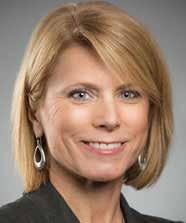
Claire Burke is the CFO and Treasurer of Dearborn Group. This article is reprinted courtesy of Insight, the magazine of the Illinois CPA Society.
by Alyssa Downs, CPA Chair, OSCPA Young Professionals Committee Wilcox Arrendondo & Co.

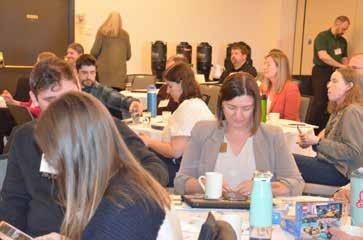
I just got back from the OSCPA Strategic Leadership Forum in Newport. I left inspired. There are three main takeaways I had: the CPA pipeline issue, the opportunity to get involved with the legislative and other OSCPA committees, and the welcoming nature of OSCPA members.
The CPA pipeline issue was addressed by several of the speakers including Carla McCall, AICPA Board Chair and Jennifer Wilson from Convergence Coaching. There remains a dearth of new CPAs coming into the field and it is a real issue for firms.
One thing that we can do as members of the OSCPA is to get out in the community and talk about how awesome it is to be a CPA. It made me proud to be at the forum and to be a CPA. There are so many opportunities it gives you professionally and many types of work you can do. I would like to encourage CPAs whether in industry, public accounting, not-for-profit, or government to go out there and talk about the work you do.
Go to that career day at your kid’s school or talk to their high school business class. CPAs are the trusted advisors of many small businesspeople and often know so much about their lives. Being a CPA is a numbers business, but more than that, it is a people business. We have endless opportunities to serve people well and make a difference in our communities by directly lifting up our small business community.
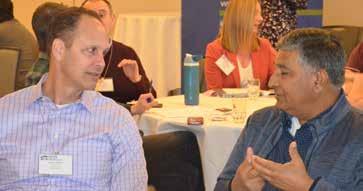
There are multiple committees open to OSCPA members. If there is a professional interest that you have there is a committee for you to serve on. I was incredibly impressed by the dedication of the legislative committees. They meet with lawmakers, review bills, and testify before the legislature. They are able to actually help shape the bill and what becomes law.
The OSCPA is our biggest advocacy group as CPAs in Oregon. Sometimes things change under your nose while you are busy working away and you may feel that you don’t have time to engage. Thankfully, there are ways to engage as the occasional “ad hoc” member and to provide testimony on critical issues to CPAs such as licensure requirements or taxes that may affect clients.
Additional committees like the Estate Planning Committee plan the Estate & Trust Conference the OSCPA hosts each year. I would encourage you to consider serving on a committee as this may be your chance to influence the law or get to know your peers who work in the same specialties.
Lastly, I was impressed with the welcoming nature of OSCPA members. Everyone was very friendly and always had helpful words of advice on any questions I asked. There are many opportunities available. It is encouraging to connect with CPAs who are further along in their career and to see the wonderful things they are doing, like testifying before the Oregon Legislature! Each person I met was approachable and had helpful suggestions for how to get more involved. There are wonderful ways to learn if you are willing to get plugged in.
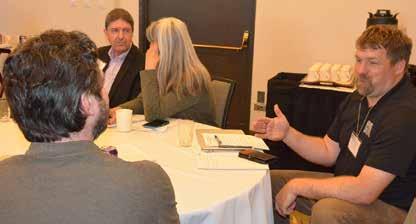
Overall, the Strategic Leadership Forum opened my eyes to the possibilities for involvement. I was impressed, encouraged, and derived energy from the excitement of the other attendees. We really have something special in the Oregon Society of CPAs and not everyone knows about it. You have something to bring and something to receive from this organization. I highly encourage you to think about how you could get more involved, in big or small ways.
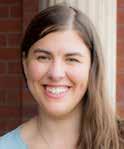
Alyssa Downs is the Chair of the OSCPA Young Professionals Committee and is a CPA with Wilcox Arredondo & Co. in Canby, Oregon.
• Next year’s Strategic Leadership Forum will take place in Newport, Oregon on April 28-29th, 2026. We hope to see you there.
• To find out more about committees contact membership@orcpa.org.

Inspired by the Strategic Leadership Forum, Alyssa went to Corvallis High School to speak about her career as a CPA.
Want to connect with a classroom?
Email membership@orcpa.org


The annual Profit & Toss Cornhole Tournament, co-hosted by the OSCPA Young Professionals Committee and the MBA Young Lawyers Section, was a smashing success! With fantastic turnout and high spirits all around, the event brought together young professionals for a fun evening of friendly competition and meaningful connection.
More than just a good time, the tournament raised just over $3,000 in support of Youth Villages, helping make a real impact on the lives of local youth and families.
A big congratulations to returning champions, DeAndre Jackson and Isaiah Hardy, who took home the tournament title with impressive skill and sportsmanship! And a big thank you to our sponsors Perkins & Co, Sussman Shank LLP, Geffen Mesher & Company PC, and Schwabe Williamson & Wyatt PC. Events like these remind us that connection, collaboration, and community are what truly set our profession apart.
We can’t wait to do it all again next year!
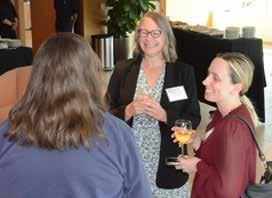

The OSCPA and the Oregon State Bar Business Law Section teamed up once again for the annual Spring Social, held at Ballard Spahr Lane Powell in Portland. With a strong turnout and plenty of great conversation, the event offered a relaxed atmosphere for CPAs and business attorneys to connect, collaborate, and catch up.
Whether attendees were there to grow their referral network or simply enjoy the evening with peers, the event delivered its promise of community and connection. Thanks to all who joined us!
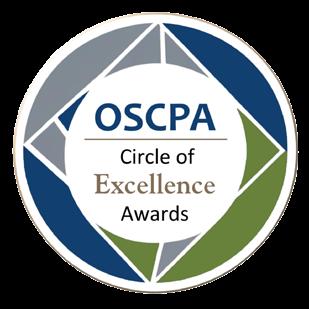
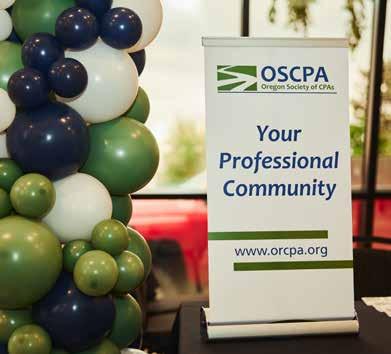
New and aspiring CPAs—supported by family and friends, faculty and employers—came out for a festive and joyfilled evening at the Circle of Excellence awards May 22.
OSCPA Chair Gary Holcomb emceed the event, with OSCPA Educational Foundation President David Adams presenting awards to 2025-2026 scholarship recipients, top university accounting students, and members reaching significant milestones. Martin Pittioni, Executive Director of the Oregon Board of Accountancy, and Haley Lyons, Chair of the Oregon Board of Accountancy, recognized exam scorers and administered the oath to the new CPAs.

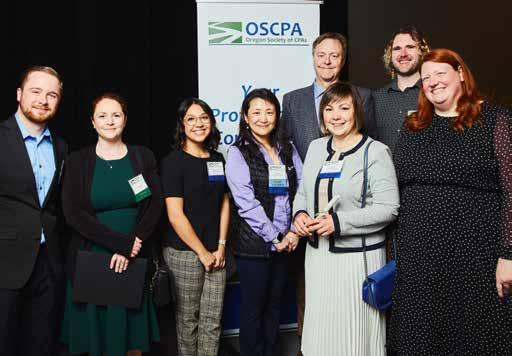
Thank you Banner Bank for sponsoring the festive evening. See more images from Fletcher Wold Photography and download your favorites at www.orcpa.org/coe.
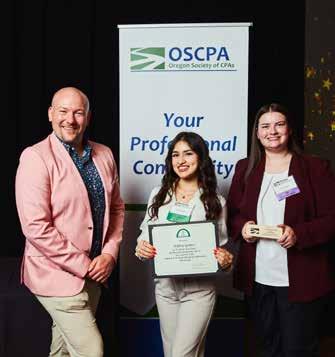
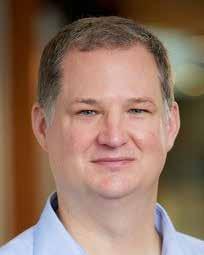
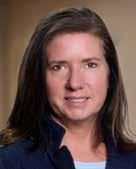

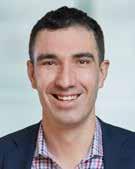
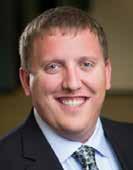

Troy Banker of Geffen Mesher & Company PC, Portland, was named to the Portland Business Journal’s 40 Under 40 list.
Randy Dean, Kernutt Stokes, Bend, has been promoted to senior tax specialist.
Brayden Lewton has joined Talbot, Korvola & Warwick LLP, Portland, as audit associate.
Jonathan McGuire of Aldrich CPAs + Advisors LLP, Salem, was named to the Portland Business Journal’s 40 Under 40 List.
Megan McKinnon has rejoined Kernutt Stokes LLP, Eugene, as chief financial officer. Her career began at Kernutt Stokes immediately following graduation from the University of Oregon with a BS in Accounting. She rejoins the firm after holding significant financial leadership roles at King Estate Winery and Community Care Partners and earning an MBA from University of Oregon.
Trisha Reforma joined Kernutt Stokes LLP, Eugene as a manager in its audit and assurance department.
Nasreen Taha has joined Baker Tilly, Portland as assurance manager.
Yulan Wang was promoted to tax manager at Geffen Mesher & Company PC, Portland.

Share your news! Submit your recent professional news to communications@orcpa.org and stay connected with your community.
The team at Hoffman Stewart & Schmidt, Lake Oswego, volunteered with Habitat for Humanity and the Dougy Center to spend a sunny day constructing a new children’s playhouse.
Romy Ahounou
Max Allen
Catherine Georg Ambooken
Jocelyn Barney
Jose Becies-Olaya
Manasi Bhide
Jennifer Biegel
John Burke
Erica Burles
Ross Burns
Cameron Buswell
Hector Cazares
Sylvia Chandler
Ke’ala Ching
Samuel Cleary
Nichol Crittenden
Michelle DePaola
Alejandro Diaz
William Dieffenbach
Samantha Downing
Parker Ediger
Kyla Eppenbach
Tyler Felan
Alex Francois
Venu Ganga
Meridian Ganz Ratzat
Trevor Geraci
Eric Groves
Dylan Ha
Jennifer Haines
Loren Harwood
Amanda Higgs
Sara Humbert
Evin Hurlin
Elizabeth Jacobs
Mingyue Jiang
Antonio Jimenez
Jermain Jordan
Skyler Karr
Janne Keskinen
Trudy Lary
Andrew Laurila
Ezra Lortz
Sam Macbale
Marta Maestu
Ivy Mao
Rodrigo Martinez
Stamatoula Mastrogiannis
Jared Matthews
Sean McBurney
Haley Monaghan
Elizabeth Montano
Janella Musni
Nada Nasr
Rose Nguyen
Jessie Norris
Ruslan Oksenyuk Sr.
Holly O’Malley
Lauren Overton
Urmila Paranjape
Anish Patel
Jody Pawlicki
Tyler Pham

Paul Pushin
James Richman
Fernando Rivera-Espinoza
Sonja Rose
Jordan Roth
Peter Saisslin
Jeanna Schenk
Brooke Shen
Faith Simpson
Brady Stoops
Trevor Thompson
Jennifer Torrens
Elisa Trujillo
Katherine Tuttle
Christopher Van Putten
Venkata Satish Vellanki
Scott Visscher
Robert Walker
Daniel Watts
Amber Williams
Horacio Zurita Jr.
OSCPA leaders represent in Washington, D.C.
AICPA Incoming 1-year Council John Hawkins; 2025-26 OSCPA Board Chair Gary Holcomb; OSCPA Legislative Policy Past Chair Selene Sullivan; AICPA 3-year Council member Jason Orme; OSCPA President/ CEO Sherri McPherson; and OSCPA Legislative Policy Committee Chair Geoff Dougall traveled to Capitol Hill in Washington D.C. to visit Congressional offices to advocate on behalf of OSCPA members and the accounting profession. Each member of the delegation is also a past Board Chair of the OSCPA.
Congratulations new CPAs. We are proud and excited to welcome you to the profession.
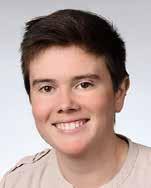

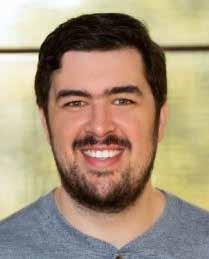
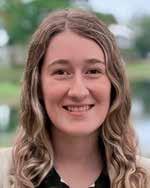




Taylor Ferre, Jones & Roth PC
Trevor Geraci, Delap LLP
Jalen Hale, Baker Tilly
Tyler Kucera, Community Development Partners
Dylan Lewis, Alie Merwin Luna Powell LLC
Sarah Logan, TD Consulting Group PC
Urmila Paranjape, The Kingsland Company PC
Austin Phan, Jones & Roth PC
Katherine Tuttle, Fischer Hayes Joye & Allen LLC
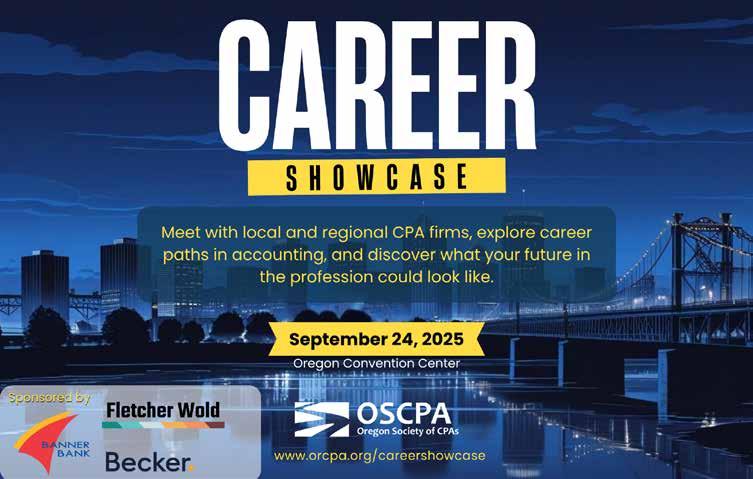

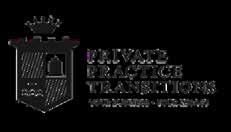
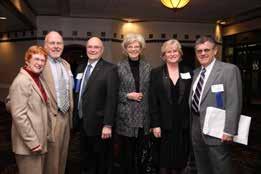
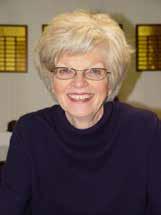
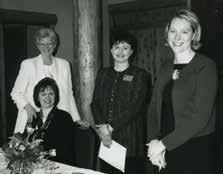
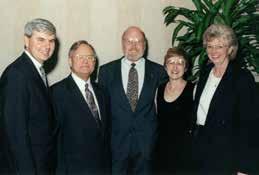
OSCPA sadly shares the passing of former Society leader Cheryl Langley.
Cheryl joined the OSCPA management team in 1976, holding several positions over the years including Director of Continuing Professional Education. In 1989, she moved into the role of Executive Director, later called President, a title she held until her retirement in 2011. During that period, she also was a member of the AICPA Foundation Board of Trustees, the AICPA/State Society Coordinating Task Force, and the AICPA Change Management/Vision Team, in addition to serving as President of CPA/SEA and the Oregon Society of Association Management. She was also a member of The OSCPA Educational Foundation Board of Directors.
Cheryl saw many changes in her 35-year career with OSCPA. In 1976, the Society had approximately 2,100 members, when she left it had over doubled to 4,800. Some of her key achievements were:
• Key leader in advancing the professionalism of the OSCPA
• Instrumental in developing long-term volunteer commitment from members
• Known for her strategic and organizational skills; viewed as a leader amongst peers and colleagues at state societies and AICPA
• Built a successful legislative track record
• Built the growth of the Educational Foundation, which had just begun in 1985
• Successful Peer Review and professional development divisions, marketing and communications initiatives; and development of member services including insurance programs
After retirement, Cheryl, a native Oregonian, moved to Arizona with her husband Garry to enjoy the sunshine and spend time with their dachshund Bentley. Cheryl and Garry’s dachshunds were beloved. She once recalled a meeting in Salem with then-Oregon Senate President Peter Courtney where other participants had to wait until the two had finished talking about their respective dachshunds.
The OSCPA extends its deepest appreciation and admiration for the many contributions Cheryl made during her time with OSCPA. She will be remembered by staff for her leadership and professionalism, her elegance and style. She put members at the heart of everything she did, and cared for them and her OSCPA team. Her impact continues, and we will miss her greatly.
A memorial scholarship has been set up in Cheryl’s name through The OSCPA Educational Foundation. Contributions can be made at: www.orcpa.org/langleyscholarship.


Elevate your expertise, stay ahead of legislative changes, and gain practical insights tailored for tax professionals.
Join us for an in-depth exploration of advanced techniques, guided by industry-leading experts. Don’t miss this opportunity to master the complexities of SALT and transform your tax practice. Sign up today and take the first step towards becoming a SALT expert!
September 24, 2025 - Protecting Yourself & Your Clients: Understanding the Implications of Remote Work & Licensing Requirements (2 hours)
CPE: 2 / Level: 2 (Intermediate) / Webcast - #W80839
October 22, 2025 - Income Tax Nexus and Apportionment (2 hours - morning)
CPE: 2 / Level: 2 (Intermediate) / Webcast - #W80848
November 19, 2025 - Federal & State Audit Defense: Do They Really Need All Those Documents? (2 hoursafternoon) - NEW!
CPE: 2 / Level: 2 (Intermediate) / Webcast - #W80886
December 10, 2025 - Oregon’s Pass-Through Entity Elective Tax (PTE-E): Don't Miss a Deduction (2 hoursafternoon)
CPE: 2 / Level: 3 (Advanced) / Webcast - #W80899
December 17, 2025 - Washington B&O and Sales Tax Including Focus on Investment Income (2 hoursmorning) - NEW!
CPE: 2 / Level: 2 (Intermediate) / Webcast - #W80910
January 23, 2026 - Multnomah County / City of Portland Taxation Update (2 hours - morning)
CPE: 2 / Level: 4 (Update) / Webcast - #W80928
January 23, 2026 - City of Portland, Multnomah County, and Metro Taxes: Practitioner Perspectives (2 hours - late morning)
CPE: 2 / Level: 4 (Update) / Webcast - #W80929
January 23, 2026 - Oregon Department of Revenue Update (2 hours - afternoon)
CPE: 2 / Level: 4 (Update) / Webcast - #W80927

Purchase individual courses or bundle and save up to $112! www.orcpa.org/cpe/W80944

On-demand CPE from OSCPA gives you the flexibility you need to maximize your time. Gain access to convenient learning options at special member savings through our partnerships with Surgent CPE and AICPA.
Surgent’s Unlimited Plus CPE Package — $625* for OSCPA members
• Access to all Surgent live webinars (1,200+) to include late-breaking tax updates
• Over 250 on-demand/self-study courses
To order: www.orcpa.org/cpe/S03692
Surgent’s Unlimited Self-Study CPE Package — $380 for OSCPA members
• Over 250 on-demand/self-study courses totaling over 1,000 CPE credit hours
• Access for 12 months from date of purchase
To order: www.orcpa.org/cpe/S03694
AICPA Annual WebcastPass — $575 for OSCPA members
• Unlimited access to 500+ webcasts featuring top experts, regulators, agency representatives, and more
• Immediate access to certificates of completion with zero tests
• Access to archived webcasts on-demand
To order: www.orcpa.org/cpe/S03696
AICPA CPExpress — $385 OSCPA members
• Presented in one- or two-hour increments
• Key topics Accounting, Assurance, Ethics, Employee Benefit Plans, Not-for-profit, Fraud and forensics, and more
To order: www.orcpa.org/cpe/S03695

CPAs are trusted advisors. According to Oregon Board of Accountancy’s OAR 801-040-010: Each biennial renewal periods, all Active and Inactive licensees must take four hours of ethics CPE. For the most current Oregon Administrative Rules (AORs), refer to the BOA website: https://tinyurl.com/OR-BOA-Rules.
Ethics
• October 27, 2025 - Webcast Replay* - #W80850
• November 19, 2025 - Webcast Replay* - #W80884
• December 4, 2025 - Webcast - #W80893
• January 27, 2026 - Webcast Replay* - #W80930
Producer: Mark Hugh PLLC
*Webcast Replay Producer: ACPEN & Mark Hugh PLLC
Professional Conduct & Ethics - AICPA and Oregon Board CPA 2025 Regulatory Update by Jim Rigos (4 hours - morning)
• November 10, 2025 - In-person - OSCPA Center, Beaverton - #11243
• November 10, 2025 - Webcast - #W80875
Producer: Rigos Professional Education Programs, Ltd.
Oregon & Washington Ethics 2025 (4 hours - morning)
• December 10, 2025 - Webcast - #W80901
Producer: Mark Hugh PLLC
The annual financial audit for fiscal year 2024-25 is complete. For more information, contact Darlene Boles, CPA, Vice President/COO, at 503-597-5470 / 800-255-1470, ext. 117; dboles@orcpa.org.

• October 16, 2025
In-person: www.orcpa.org/cpe/11226
Webcast: www.orcpa.org/cpe/W80723

• October 31, 2025
In-person: www.orcpa.org/cpe/11227
Webcast: www.orcpa.org/cpe/W80724

• November 12-13, 2025
In-person: www.orcpa.org/cpe/11229
Webcast: www.orcpa.org/cpe/W80726

• December 9, 2025
In-person: www.orcpa.org/cpe/11230
Webcast: www.orcpa.org/cpe/W80727
• November 18, 2025
In-person: www.orcpa.org/cpe/11228
Webcast: www.orcpa.org/cpe/W80725


• January 6, 2026
In-person: www.orcpa.org/cpe/11231
Webcast: www.orcpa.org/cpe/W80728
Governmental Auditing & Accounting Conference
• January 26, 2026
Webcast only: www.orcpa.org/cpe/W80729


2025 Federal Tax Update featuring Greg White & George Koutelieris - Portland
• January 14, 2026
In-person: www.orcpa.org/cpe/11232
Webcast: www.orcpa.org/cpe/W80730

2025 Federal Tax Update featuring Greg White & George Koutelieris - Eugene
• January 15, 2026
In-person: www.orcpa.org/cpe/11233
Webcast: www.orcpa.org/cpe/ W80731
OSCPA members can earn valuable knowledge in the not-for-profit realm and get complimentary CPE with our Not-for-Profit Knowledge Networks (KNETs). KNETs are designed for members working with and within the not-for-profit sector and contain essential information as well as the opportunity to connect with not-for-profit experts, all free for OSCPA members.
Mark your calendar for upcoming 2025-26 dates: Interested? For more information and to register, email profdev@orcpa.org.
• October 1
• November 5
• December 3
• February 4
• March 4
• April 1.
Your input is essential to our mission to bring you the best in continuing education. Your feedback helps determine what topics will be offered in the 2026-27 OSCPA-Select™ curriculum.
Take the survey: www.surveymonkey.com/r/2026CPE
Survey opens August 1, 2025.
Questions? Contact Tonna Hollis, Director, Professional Development, at thollis@orcpa.org; 503-641-2700 / 800255-1470, ext. 129.

Take the survey by August 22, 2025, for a chance to win a free OSCPA-Select™ 8-hour course!
on a nonprofit board may provide more benefits than you expect
Afterwards at 5:30 pm, come down to the nearby Steeplejack Brewing Co. for a nonprofit social sponsored by the Network for Oregon Affordable Housing.
Join us for an afternoon training with sessions on the role of a Treasurer, Board Governance, and some Not-for-Profit essentials.
Wednesday, August 13th 2–5 pm • OSCPA Center, Beaverton


For decades, OSCPA has been a steadfast advocate for the profession, building a strong and trusted reputation in Salem that empowers the Society to effectively protect and advance the interests of CPAs.
